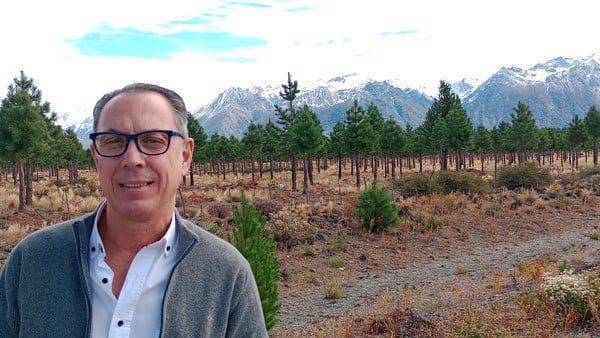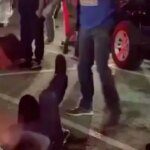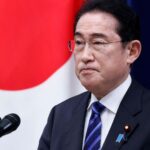Global Courant 2023-04-15 06:40:56
I didn’t look down
with shame.
Nor was he shy.
I was looking for the pieces
of the broken
to stick them
and return to the whole.
I wrote this more than forty years after I was sexually abused twice, at the age of nine and ten. In both cases, by two relatives. Poetry helps me decode images, interior photos, certain portraits, some situations. Giving that context to the memory of that child that I was, helped me find a different context to what was previously shame and guilt. The abuses are not poetic, but the word is useful and a lot.
I’m not going to tell who the abusers were or details of the abuse because I don’t want to. What would be the reason to do it? One of them is dead, I am not going to report the other to the Justice and the closest family is informed. Telling the general public details of the events would seem like another abuse to that child that I was. What happened was traumatic enough that, until well into adulthood, I did not know how to relate to the opposite sex in an attitude of commitment and dedication and other consequences that I will point out below.
In a school act, Ariel Puyelli dressed in folk clothes. Around that time, he lived through dark moments. “What happened,” he says, “was traumatic enough that, until well into adulthood, he didn’t know how to relate to the opposite sex in an attitude of commitment and dedication.”
The abused is afraid to trust because he fears being betrayed and has deep communication problems. Since I was 21 years old I have been a journalist, a few years later I have been a writer and educator; that is to say that I am essentially a communicator. But I’m also the one who had to learn to communicate at 50 years old.
My story is one of many stories of men who only in adulthood can see, recognize and verbalize abuse in childhood, whatever it is. Men who, when faced with news related to abuses, are outraged and condemned, but who, in the best of cases, fail to understand that “they were not responsible or complicit” in their own abuses and perpetuate themselves in guilt, shame and silence. As I did until 2013, when I turned to the second page of the book “La cacería del ángel”, by Sebastián Di Silvestro, in which he recounts sexual abuse by clergymen and laymen related to them, towards children from Turdera, a city in Buenos Aires. that I don’t know Perhaps it is similar to my hometown, San Andrés de Giles, which at that time was more of a country town than it is today and where abuses were never openly discussed. Much less children.
I was born in 1963. I grew up in a family of six brothers. I am the third. Or the fourth, counting a gestational death. Mother a housewife and father a banker. Middle class. Loving mother and absent father. On the other hand, trying to rescue another type of genetic traces, a reading mother and lover of classical music and a housewife father with almost no social life. Since I was a child I knew that the bank was not my thing, as it was for my father and my two older brothers. I think he unconsciously blamed the numbers – his accounting jobs – for my father’s little time at home. Today I see it differently, of course.
In a school act, Ariel Puyelli dressed in folk clothes. Around that time, he lived through dark moments. “What happened,” he says, “was traumatic enough that, until well into adulthood, he didn’t know how to relate to the opposite sex in an attitude of commitment and dedication.”
I don’t have kids. Sometimes I wanted it (I don’t know whether to have a child or a child in my house) and when I formed a stable couple, after forty years, I realized that I really didn’t want it. I did not want to have children. Fortunately we coincided with my wife. I felt internally that “I did not want to bring into this world” a child. I was referring to the world as perceived by that little boy who at the age of ten began to be in a permanent state of alert, to have sleep disorders, relationships with others and with the acceptance of his body, who wanted to drink whiskey and smoke cigarettes because that introduced him to the world of adults and being an adult stopped endangering his physical and psychological integrity. If he grew up fast, he got big fast and could hold his own.
My two older brothers were boarding students or boarders in a Catholic school throughout high school, so they returned to the family home only during vacation times. At the age of ten or eleven my parents made me an older brother, with what that means in a large family. I had to be my mother’s right hand, her Juanita (do you remember Doña Petrona?), often a soldier, sometimes a kind of tutor and sporadically the private teacher of my other three brothers or some of them. When I told one of my psychologists that my mother also forced me to accompany her to wakes in town because “my father didn’t like them”, she told me that her mother made me her husband. Even today it is difficult for me to digest the concept because unfortunately it resonates with me.
I had my attempt to evade those responsibilities (or a kind of license) by becoming a boarder myself for one year, the first year of high school, at that school in Ramos Mejía. One school year was enough for me to realize that it was not the best decision. Nearly sixty children and adolescents in a religious institution, hermetically closed to the reality of the outside world and with those secrets open among the oldest and some of the youngest… It was preferable to return to town.
My family, like that of various schoolmates or the neighborhood, was a matriarchy. Fierce and utter. No room for opinions or sentimentality. “I made them very machitos”, my mother would declaim when one of them showed some trace of sensitivity. I knew I was a man and I had no conflict with it, but in that context, much less in that of a homophobic society, I could tell what had happened to me and it confused me, tormented me, squeezed my throat, especially in the early years of adolescence. and every time I was close to those who had forced me to carry that secret that weighed a ton.
I felt that I had to hold on to silence, because I was sure that if I told what had happened, I would be punished, humiliated, pointed out in the inner circle and in the society of that small town where everyone finds out about everything; and mainly in my social world, the parochial school, a school for boys who flaunted their manhood through punching and bullying, in front of the passive gaze of adults who carried the message “defend yourself, don’t be a sissy”.
The size of my secret suffocated me at times. Not knowing how to process what had happened was tormenting. It did not occur to me that I could be a victim, but rather an accomplice. If everything had been an innocent game, the suspicion of the other was very suspicious so that he would not tell it. Being complicit in something that other children did not do, as far as he understood, was strange. Something was wrong. And, like most victims, I finally convinced myself that it was me that was wrong.
After several years of therapy, at age 55, I was able to talk to my parents, tell them about the abuse. I was able to speak, but they couldn’t, didn’t want to or didn’t know how to face it, and they cut off their relationship with me a few months before they both passed away. “Why do you have to tell it now?” was the big question they asked me and which was echoed by a couple of brothers. I didn’t know where to respond: if because of “having to tell it” or because of “now”. My relationship with them had been more distant every year, mainly with my mother. While I was able to grieve early which cushioned the impact of their deaths, there will always be something left unfinished. Anyway, I think I’ve made my peace with them. As for the surviving abuser, I don’t know. When I confronted him with the memory of the event – not my trauma – he said he did not remember it. I know that he later repeated it in front of others in the family with the same puzzled face. The amnesia of abusers is phenomenal. I suspect that he too was a victim in his childhood or adolescence.
If I’ve learned anything over the years, it’s that you have to talk. When and how you can. I know of people who have only been able to recount this type of childhood trauma at the age of 70, 80 or 90. And many more take their stories to the grave. Victims who feel restrained, when they can talk, offload much of the weight. I experienced it. First of all, with my wife. Then with a psychiatrist friend, the first thing that made me stand out was how, “despite everything” I had been able to become a man capable of love, of building a home, of leading a dignified life. Later, armed to the teeth, diving into the depths, accompanied by psychologists. Everything has a cost and here there is no exception. From relationship breakups like the ones I cited above, to accusations, unpleasant and disturbing or re-traumatizing events can occur. I was lucky to resist them thanks to the support, understanding and respect of the people I chose as a support network. My adult self was able to face the other adults and at the same time protect my child and his injuries.
The scars of our repaired pieces are our memory. The issue is to repair and face the duel. When I reviewed my life at fifty and realized how much and how childhood traumas had influenced my personality, I first felt anger, because those events and others, beyond my responsibility, had diverted me from the path I had followed. I supposedly had a blueprint for my potential development. If my actions and reactions were always conditioned by those traumatic events, to what extent had I lived and acted freely?
It was a terrifying feeling. I got angry not only with those who had taken advantage of my innocence, but above all with those who should have taken care of me and protected me; one of those same ones who must have realized that something had happened to me, that something had changed in me, that something had been shattered in my soul. Then I felt sadness for that emotionally bruised boy. Later, shame for some of my relationships and the way I handled them. But finally, I understood that in reality all this made up the path. No more no less. And discovering the resources that that same personality brought with it to stop being a victim and become a survivor was a discovery. The written word was always one of those resources.
In my literary review, I was able to see how many lines of my children’s books my inner child had written and how many I had written, the one who writes this, the one who is spending his life working to build himself as an author, in the broadest, most existential sense. .
I look at one of the photos on my desk: Sisters College, five years old, first week of first grade. In that photo he was happy. I think it was whole. I want to believe it.
In that photo now that I write this, I think I find other information: I wrote everything I wrote for that particular child. Just for him. What he did, in any case, was use this adult to share the texts with other children.
I explain to him that he wasn’t such a green dog because he had very few friends, got lost in books and the radio, sought solitude, slept with only one eye, and mistrusted contact with others. It was that he was afraid of opening up and being hurt. And today, the story is different.
—————
Ariel Puyelli. Writer, journalist, psychoeducator, therapist in Therapeutic Writing and Grief, Trauma and Psychological First Aid. His first birth occurred in July 1963, in Buenos Aires; the second, in June 2002, in Esquel, Chubut. Since 2010 he has lived in Lago Puelo, although since last year he has alternated this town in Chubut with San Andrés de Giles, where he will soon settle again. He wrote more than thirty books -story, novel, poetry and self-help- and integrates anthologies of poetry for adults and stories and poetry for children and adolescents. More personal and literary information can be found on his blog arielpuyelli.blogspot.com.








